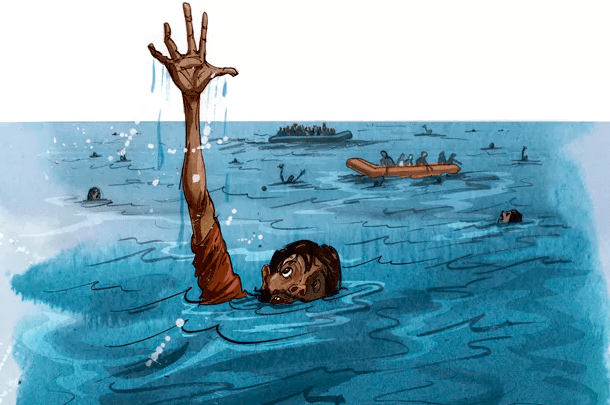The argument over the recently-abandoned Dubs scheme for refugees encapsulates what is wrong with the debate about what is, perhaps, the worst humanitarian crisis of recent years. The actor David Morrissey was on the Peston show this morning saying he was “devastated” when Theresa May decided to stop plans to take a limited number child refugees from Europe and instead focus on settling 20,000 straight from the Middle East. Except, of course, her policy wasn’t framed in that way on Peston’s show. It never is, anywhere. We have heard the same point, made by well-intentioned people like Morrissey, for weeks. But no one mentions what the Prime Minister proposes instead. To anyone serious about tackling one of the gravest problems of our times, this matters.
As Oxford’s Paul Collier argues in the cover article of this week’s magazine, the West is letting down refugees by an inability to think properly about their fate – and about what kind of help would work best. As Prof Collier says, there’s lots of heart – but it’s “headless heart”. About 18 months ago, Rod Liddle made a similar point on Question Time: he referred to the “Dianification” of the refugee debate. If you play the people traffickers’ game and resettle those who make it to Calais, he said, then you encourage the abominable industry of people smuggling and “more and more will die” as a result. So it has proved. An extraordinary 525 perished in the Mediterranean in the first ten weeks of this year, a significant increase on the first ten weeks of last year. So after all of these offers of asylum things are getting better, not worse. How many more have to die before we rethink the policy?
No one could criticise Lord Dubs for his plan. He is a Labour peer who arrived in Britain as a child seeking refuge from the Nazis, and proposed a similar scheme: that Britain would take in about 3,000 child refugees from Europe. Anyone who has had their life saved by an a refugee policy would wish the same for those coming decades after him. He made his case with gentle force, and his campaign was honoured in The Spectator’s Parliamentarian of the Year awards last year. In parliamentary terms, it was a superb campaign. But as a solution for the refugee problem, it is heartbreakingly inadequate.
It was inevitable that parallels should be drawn with the Dubs proposal and Kindertransport —but the situation has changed, utterly, from that we once faced in the 1930s. Settling the handful of refugees who make it to Europe means playing into the hands of people traffickers who are happy to take money from migrants to put them in unseaworthy boats and care not one jot for their lives.
Instead of the Dubs Amendment, the government proposed something better: taking 20,000 children straight from the Middle East and giving them refugee status in Britain. This fulfils our humanitarian obligation while cutting out the people-traffickers. David Cameron lost this argument in the Commons so gave up and started a Dubs scheme; Theresa May abandoned it. She was promptly accused of heartlessness in turning away child refugees, but said nothing in response. She might have mentioned that accommodating refugees in Britain can cost 50 times as much as doing so in Jordan, where Britain is doing a great deal. Indeed, her government is spending more to help Syrian refugees than any country in Europe.
But it must not stop there. As Prof Collier argues, fixing up people with food and tents is not enough. The vast majority do not want to live in camps and will not thrive in them. Far better if refugees could be resettled temporarily in countries close to Syria from which they are much more likely to return, and in conditions which offer them much greater opportunities to support themselves and develop their skills than does a refugee camp. Professor Collier’s ideas are taken seriously by Mrs May’s government, which now supports companies in Jordan that employee Syrian refugees. No other nation — in Europe or beyond — is doing more in this field.
The government could boast about this. But instead it stays quiet, as if ashamed of defying the prevailing orthodoxy. Her enemies are not so reticent. Nicola Sturgeon has been busy using the closure of the Dubs scheme as proof of the blackness of Westminster hearts.
Ministers need to stop being caught on the defensive and continue the development of a policy aimed at helping the maximum number of Middle Eastern refugees while minimising the evil human trade that is causing so many deaths in the Mediterranean. Global migration is perhaps the greatest new problem of our times, and Britain is leading the world in its response. The Prime Minister should have the courage to say so.






Comments